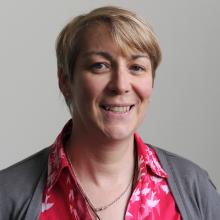
I was listening to the radio while driving and the song Who Are You? (by The Who) came on.
"Who are you? (who, who, who, who?) I really wanna know (who are you? who, who, who, who?)"
It struck me it's a question we ask ourselves, often when faced with a crisis or life-changing event.
Perhaps we've had an important relationship breakdown, been made redundant or suffered a major health event. Such life events seem to invoke a feeling of inadequacy around who we think we are.
We search for a core sense of ourselves in order to create stability and reassemble some feelings of self-worth.
When an important part of our life changes, usually for the worse but not always, we seem to lose something of how we view ourselves, of our identity. No longer are we a "partner", an "engineer", a "mother of small children", the "guy who owns that pink Lamborghini" etc.
We are very quick to identify ourselves through our circumstances - our occupation, our roles in life, our relationship status or our ability to amass material goods and wealth, or as I call them our "life markers".
But is that really who we are and is our identity a static concept?
By attaching our sense of identity to our life markers we give away some control over how we define ourselves.
We may not always have a choice about being a partner if our loved one chooses to move on without involving us in the decision making, we may not always be an engineer if a medical event renders us incapable of continuing along that career path, our children will grow up and leave home.
When life markers are stripped from us we can be left reeling and feeling like our emotions have been laid bare. A period of grief can follow.
It's important to acknowledge the grief, to feel it and work through it with support and self-compassion.
A period of stabilisation can then follow when we attempt to regroup and create new routines.
When life has settled, a time of reflection can be useful and it's here the question of "who am I" is probably best placed.
It's my view that our identity and its development is an ongoing, lifelong process.
While the question remains the same the answer will be dependent on our age and stage in life. There's no one answer to "who am I" that serves us on a lifelong basis.
Some aspects of our identity will remain unchanged and others will change as we reflect and re-craft ourselves.
We can choose to keep the parts that have served us well and shed the parts that constrain us or no longer fit.
By purposefully loosening our grip on some of the ill-fitting or old aspects of our identity we open ourselves up to possibilities of growing and developing in ways we may not have thought possible.
So, what can we use to help identify who we are if our "life markers" are changeable and precarious?
Saul Levine M.D. (professor emeritus in psychiatry at the University of California) suggests in his book, Our Emotional Footprint, a framework to help us look at our identity in a more holistic manner.
He calls it "The Four B's. Having a sense of being, belonging, believing and benevolence. Let's take a look at what he says:
BEING (Personal): People who have achieved a sense of Being have sense of inner peace and self-acceptance. They have insight and a realistic self-image. They practise gratitude, are aware of their strengths and potential - and importantly of their flaws and limitations - and are prepared to work on them. They are empathic and caring, kind and generous and they're respectful and tolerant of others.
BELONGING (Social): People with a sense of Belonging know they are integral members of at least one group or community of people that is very important to them, where they feel comfortable, liked and appreciated, and where they genuinely reciprocate those feelings. The members provide support, respect, and friendship. These kinds of relationships give pleasure and fulfillment. The sense of belonging contributes to physical and emotional health and enhances the quality of their lives.
BELIEVING (Ethical/Spiritual): A sense of Believing refers to having guiding values and principles for our behaviour. We human beings need to believe in a reciprocal system of moral principles and civil behaviour. We adhere to these overriding tenets in our daily functioning and relationships. They may be religious, pagan or non-denominational belief systems or other humane social philosophies. When we act according to principles and tenets based on our beliefs our lives become more meaningful.
BENEVOLENCE (Altruism): A sense of Benevolence refers to the extent to which we have had a caring effect on others. It encompasses how we have positively affected and contributed to the people our lives cross. This can be every day when we demonstrate seemingly small but important acts of kindness and generosity or it may be in the positive effects we have in the larger "social environment".
Benevolence is in a way a culmination of the other Bs. Our personal legacies are best represented by our level of individual integrity, our acts of decency and respect for others.
Defining our identity is a lifelong challenge.
The answer to "who am I" is frequently modified over a lifetime, depending on our "life markers".
Wrestling with existential quandaries like "Who Am I (really)?" is a necessary part of our lifelong quest for understanding ourselves.
It's an important question to answer as it helps us set our personal directions and goals, make important choices, and evaluate how we are doing.
Using a more holistic framework to understand who we are may well give us a more accurate picture of our identity and be more fulfilling rather than relying on those changeable life markers.
Jan Aitken is a Dunedin-based life coach.
For more go to www.fitforlifecoaches.co.nz.
Twitter:@jan-aitken













